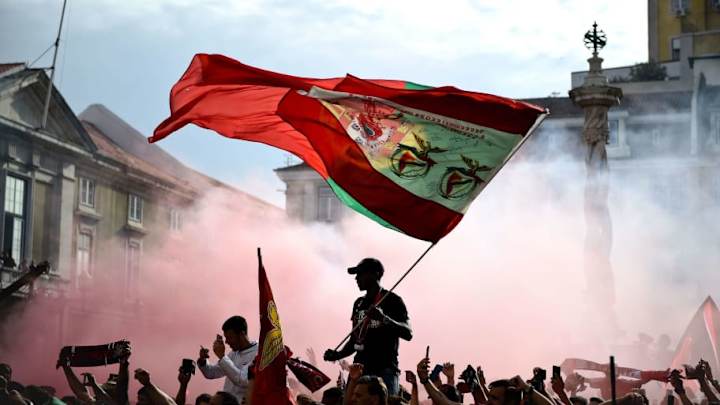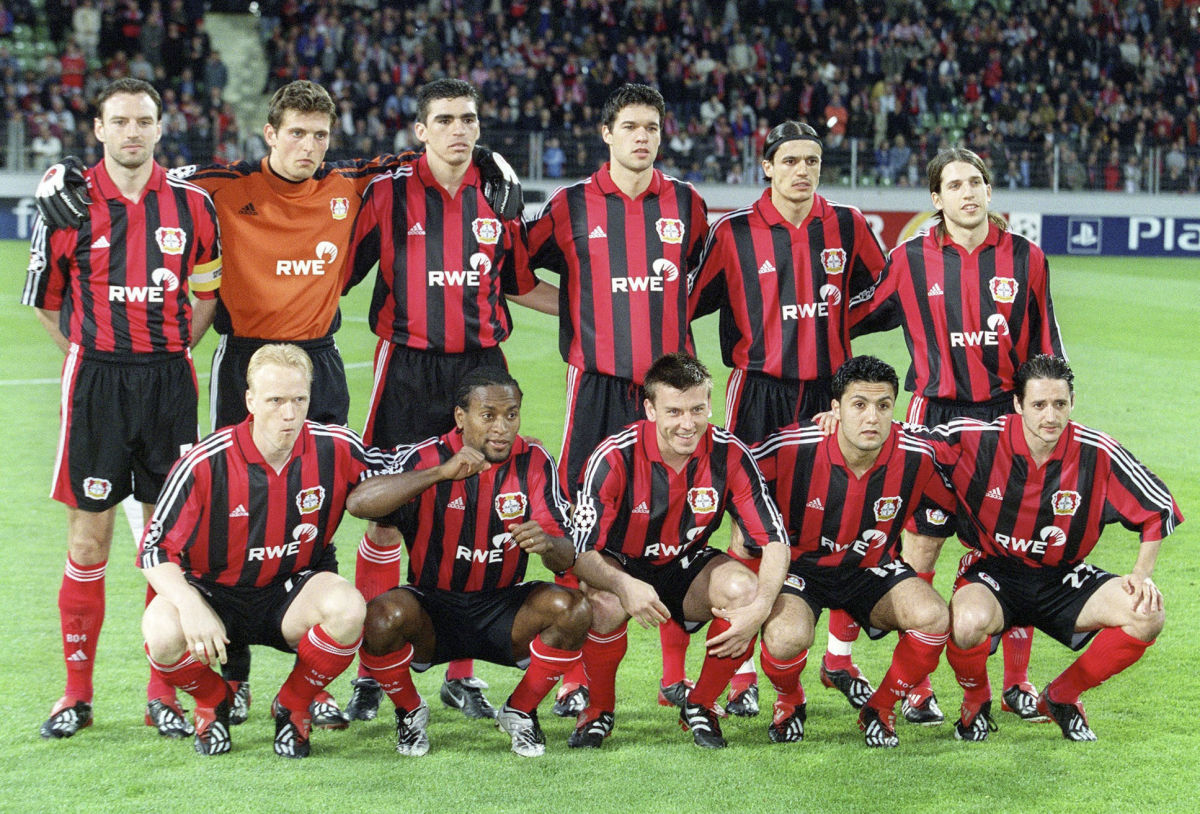6 of the Biggest Curses in Football History

As much as talent, mentality is a huge part of success in football. Superstition is therefore also important and its impact can be far reaching if people believe in 'curses'.
Old and new, here's a look at six famous curses from football's storied history...
Manchester United Number Sevens
Steeped in tradition and worn by legends like George Best, Bryan Robson, Eric Cantona, David Beckham and Cristiano Ronaldo, Manchester United's number seven has brought pressure and ultimately failure to all its wearers for a decade.

When Ronaldo left for Real Madrid in 2009, it went to Michael Owen, a player whose memorable achievements extends to just a Manchester derby winner.
Antonio Valencia took it in 2012 after being named Sir Matt Busby Player of the Year, only to quickly revert to his old 25. Angel Di Maria and Memphis Depay lasted just 12 and 18 months respectively, while Alexis Sanchez could also be cut loose soon.
United's number sevens have scored just 14 Premier League goals in the last ten years.
Racing's Dead Cats
A bizarre story from Argentina tells that 1967 Copa Libertadores and Intercontinental Cup winners Racing Club, one the country's traditional 'big five' clubs, were cursed that year when rival Independiente fans broke into the stadium and buried seven dead black cats.

Racing couldn't repeat their success of the 1960s. The 1970s passed without further titles, while the club was even relegated from Argentina's top flight in 1983.
Six of the decaying felines were recovered over the years, but the seventh remained missing. The 'curse' was therefore still in place and Racing were declared bankrupt in 1998. A year later, a priest performed an exorcism at the stadium before an audience of 100,000.
By 2001, new manager Reinaldo Merlo had ordered a full search and the last cat was eventually found. Within months, Racing had won the 2001 Apertura, their first Argentine title since 1966.
Bayer Neverkusen
Bayer Leverkusen were cruelly dubbed 'Neverkusen' in the 1990s and 2000s when the club continuously fell short in every competition, and to this day have still not won the Bundesliga.

Leverkusen finished second in Germany's top flight in 1997, 1999, 2000 and 2002 during an incredible string of near misses, adding another second place in 2011.
Leverkusen were pipped to the title on the final day of the season in 1999/00 when they only needed a point, but the 2001/02 campaign was the real stinker. The team lost two of their final three games to see a five-point lead disappear as Borussia Dortmund came steaming past.
On top of that, Leverkusen also lost the DFB-Pokal final and the Champions League final as the whole season fell apart. A potential historic treble, yet 'Neverkusen' didn't win any of it.
115 years and counting, will they ever be crowned champions of Germany?
Birmingham & Romani Gypsies
According to legend, Birmingham City were cursed for 100 years in 1906 when they built their St Andrew's home. The land at the time was being used by Romani Gypsies, leading to a 'curse' and a century of bad luck for the Blues.

The very first game at St Andrew's was delayed by an hour due to snow and at the end of their first full season, they were relegated. The main stand burned down in the Second World War, while contaminated waste cost £250,000 to remove in the 1990s.
More painfully to fans, the club never won any major trophies.
Former manager Ron Saunders placed crucifixes on the floodlights to try and lift the curse, while Barry Fry, another old boss, urinated in the four corners of the pitch.
Having been up and down for a century, Birmingham were relegated in the final year of the curse in 2006. But just five years later the club won its first ever major trophy with League Cup success in an unlikely Wembley victory over a much fancied Arsenal.
Australia & the World Cup
Tasked with beating Rhodesia, now Zimbabwe, to keep their hopes of qualifying for the 1970 World Cup alive, Australian players consulted a witch doctor prior to the game.

In a story told in the autobiography of legend Johnny Warren, the witch doctor buried bones near the goalposts to 'curse' the Rhodesia team. The Socceroos won 3-1 to progress, but the players apparently couldn't come up with the money to pay for the help.
Supposedly 'cursed' in revenge, Australia lost the subsequent playoff against Israel and failed to qualify. They did make it to the 1974 World Cup, but failed to score a goal.
After consistently falling at the final hurdle in 1994, 1998 and 2002, media personality John Safran 'lifted' the 'curse' in 2004, travelling to Mozambique, where the original 'curse' had been placed and hiring a new witch doctor to reverse it.
As chance would have it, Australia qualified for the 2006 World Cup, even reaching the second round of the competition, and have been at every finals ever since.
Bela Guttmann & Benfica
Arguably the most famous 'curse' in world football is the one that has afflicted Portuguese giants Benfica following the acrimonious departure of legendary manager Bela Guttmann in 1962.

The well travelled Hungarian arrived in Lisbon in 1959 after leaving fierce rivals Porto, embarked on a major squad overhaul to promote emerging youngsters and promptly won back-to-back Portuguese titles.
Guttmann's Benfica translated that success to European glory, breaking Real Madrid's stranglehold on the European Cup in 1961. Benfica then retained the iconic trophy the following year, but it remains their last European trophy of any kind.
Despite his incredible success, Guttmann was denied a pay rise by the board and legend has it that he cursed the club. There is no recorded evidence of exactly what was said, but the myth is that he declared, "not in a hundred years from now will Benfica ever be European champions."
57 years on, the wait continues after numerous near misses. Benfica lost European Cup finals in 1963, 1965 and 1968 immediately after Guttmann left, as well as further finals in 1988 and 1990. They even lost UEFA Cup/Europa League finals in 1983, 2013 and 2014.
This article is brought to you by The Curse of La Llorona, in cinemas soon. Check out the trailer below:
